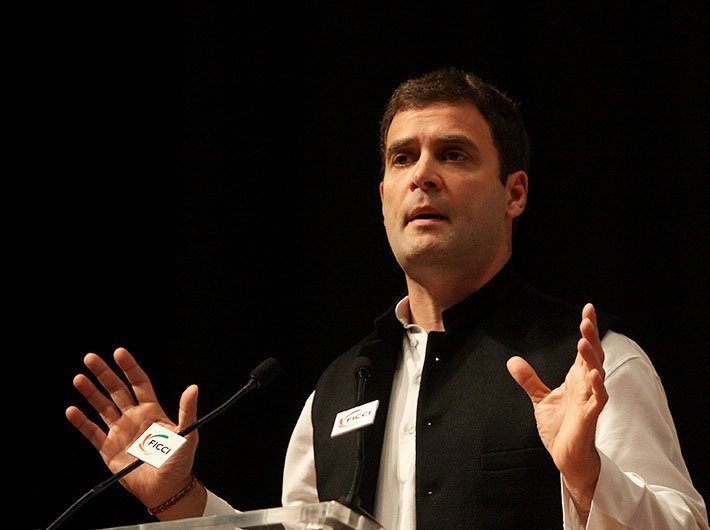Karnataka: Given its past, Congress talking of ethics is like devil quoting scriptures
Just after the UP assembly election in 1996, I was among the scores of reporters waiting at Kalyan Singh’s residence, waiting to get the first inkling of the future course of the BJP. The party had secured the maximum seats – 174 out of 425 seats – but was short of the majority mark. Since TV cameras had still not taken over the public space for news coverage, the crowd of newshounds was orderly. There was a little commotion when a white Ambassador car carrying an IAS officer arrived at the gates.
The officer, considered an emissary of governor Romesh Bhandari, confabulated with Kalyan Singh and conveyed him to be prepared for the swearing-in ceremony. “Have you brought any letter of invitation?” asked the veteran leader with a certain amount of scepticism. “It will come soon,” said the officer before leaving the place.
That was October 17, 1996. The date was crucial, since the constitutionally mandate maximum period of one year for the president’s rule was ending that day. It seemed in order that the president’s rule would end and the governor would invite the largest party after the latest elections.
What happened was unprecedented. Within an hour, Bhandari decided to revive the assembly through a fiat, then put into a suspended animation and continue with the president’s rule – all these steps in one go without bothering about the constitution and propriety. It remains unprecedented in the history of Indian constitution that a dormant assembly is revived for a few seconds and put into suspended animation without allowing it to transact any business.
Bhandari carried on with the president’s rule for six more months through these subterfuges. And his accomplices were none other than the Congress and HD Deve Gowda, who had become prime minister in June 1996. The governor’s acts of indiscretion were then seen by his apologists as masterstrokes to stem the tide of ‘communalism’ in the aftermath of the Ayodhya agitation. BJP stalwarts like Atal Bihrai Vajpayee and LK Advani could not do much except marching with a petition to the Rashtrapati Bhavan where KR Narayanan gave them nothing more than a patient hearing.
Much has changed since then. The BJP has become the principal pole of Indian politics. Also, unlike docile and mild-mannered leaders of the past generation, the new generation of the party leadership is ready to reply more than in kind to their political adversaries.
This is why the self-righteous indignation shown by the Congress and the Janata Dal (Secular) is unlikely to cut ice with people. Of course, the BJP is quite conscious of the fact that it has fallen short of only seven seats to achieve majority in the 224-member house. In effect, the party’s projection of BS Yeddyurappa as its chief ministerial candidate has found approval among a large section of people. In the first-past-the-post system of elections, the BJP has won a near-majority and emerged as the electorate’s first choice. It will be utterly naïve and improper to argue that the Congress got a higher vote share. If this logic holds water, the Congress would have won few elections since the sixties as the combined opposition polled more votes on nearly all occasions.
It would have been utterly stupid if the BJP had let go of this opportunity to form the government on its own even if it entailed imminent defeat of the Yeddyurappa government on the floor of the house. The reasons are not far to seek. The electorate that rallied behind the BJP would have been thoroughly disappointed at political timidity of the leadership if they had not gone for the kill. Unlike UP in 1996 when the BJP emerged as the single largest party but fell far short of majority, in Karnataka the party is missing the mark just by a whisker.
Those who think that the Congress and the JD(S) are fighting for democracy are either living in fool’s paradise or deliberately creating a delusion about ethics and morality. If you hear the public spat between leaders of the Congress and the JD(S), it would prove beyond doubt that there is hardly any ideological congruity between the two. They have come together only with the hope of sharing political spoils that are abundant in Karnataka. Those who know the state would testify that the Congress-JD(S) combine is inherently fragile and would be able to last only at the expense of governance. In such a scenario, the BJP’s efforts to form the government are clearly a lesser evil than installing HD Kumaraswamy as chief minister. And there is little doubt that the BJP would give a stable government if it succeeds in its strategy.
In a situation where political machinations have become quite akin to underworld operations, a new grammar has spawned that has radically changed the discourse. Given the reality that it was the most expensive election in the country, Congress leaders’ talks of morality, ethics and democracy appear like the devil quoting the scripture. Perhaps none have contributed as much in converting politics into an underworld operation as the Congress. In Karnataka, it would be naïve to expect politics to take an idealist path. However, if the Congress is really serious about restoring politics to a righteous course, let it atone for its past indiscretions and declare on oath that in future the party would only take the truthful, moral and ethical course; come what may. Can Rahul Gandhi do it?
[The comment has appeared on FirstPost.com]

